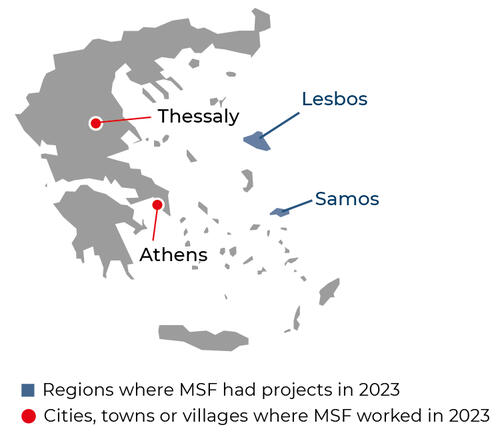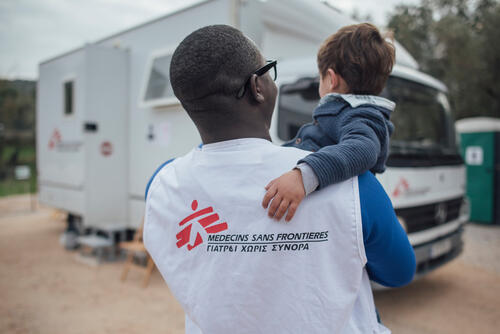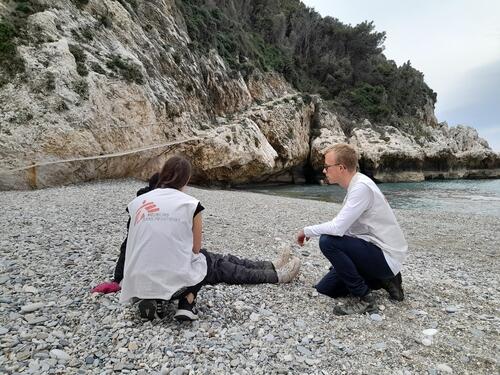In 2023, restrictive European Union and Greek migration policies continued to take a severe toll on the physical and mental health of people seeking safety in Europe. Many of those arriving in Greece, whether by sea or land, were reportedly pushed back or placed in Closed Controlled Access Centres (CCACs) and later released into the country with little to no assistance.
Throughout 2023, our teams in Greece documented people’s reports of degrading treatment, including physical violence at sea or on arrival on the islands of Samos and Lesbos. The dire humanitarian situation was compounded as more and more people arriving were placed inside CCACs, and the majority were operating beyond their capacity. As a result, there was a lack of basic items such as bed covers, food, water, and hygiene supplies, and services, resulting in various avoidable health conditions, including respiratory and skin infections. The conditions also further impacted people’s mental health.
Our teams continued to provide timely and essential medical and psychological assistance to people on arrival, inside camps, and within the community. We run day centres and/or mobile clinics in Athens and on Lesbos and Samos, as well as providing emergency medical assistance for new arrivals. Our comprehensive response includes general healthcare, mental health support, and sexual and reproductive health services.
Our teams also treat patients with infectious and non-communicable diseases, and victims and survivors of sexual violence and torture. To ensure that people receive the necessary support, our multidisciplinary approach also comprises health promotion, intercultural mediation, and social and legal services.
During the year, MSF teams offered emergency medical and psychological first aid to thousands of people upon disembarkation on Lesbos and Samos, and organised hospital referrals for those needing further care. Finally, following massive floods in the region of Thessaly, our teams provided assistance to people affected.
Read more: https://www.msf.org/plain-sight-migration-policies-greek-sea-borders







